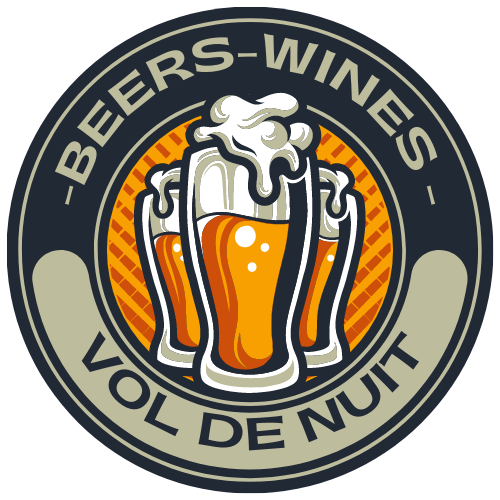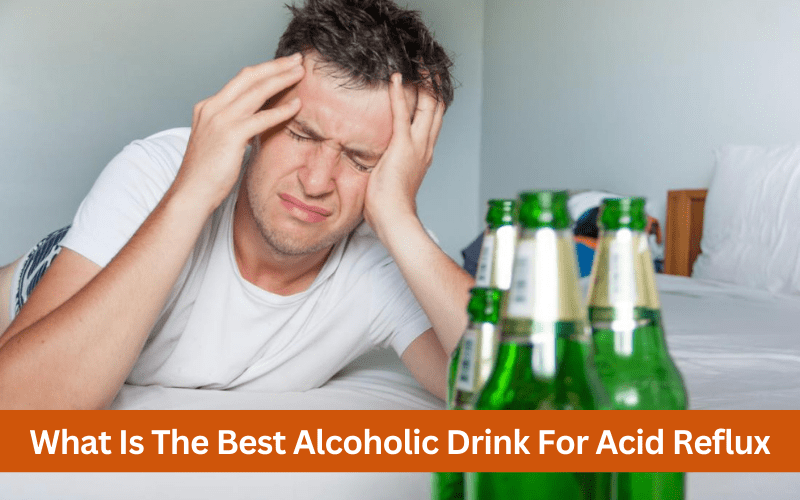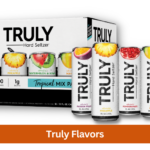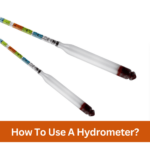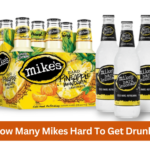Have you ever experienced the discomfort of acid reflux after a night of drinking? I sure have. As someone who enjoys a good drink every now and then, I’ve often found myself wondering, what is the best alcoholic drink for acid reflux? After a bit of trial and error, I’ve discovered that not all drinks are created equal when it comes to acid reflux. Some alcoholic beverages can aggravate the symptoms, while others may alleviate them. If you’re like me and want to enjoy a drink without the discomfort, keep reading to learn more about what is the best alcoholic drink for acid reflux
What is acid reflux?
According to the National Institute of Diabetes and Digestive and Kidney Diseases (NIDDK), when the contents of your stomach flow back up into your esophagus, it is called gastroesophageal reflux (GER). If GER leads to recurring symptoms or complications over time, it becomes a more severe and chronic condition known as gastroesophageal reflux disease (GERD). This condition can cause discomfort and potentially lead to other health issues if left untreated.
Symptoms and causes acid reflux
Symptoms and causes of acid reflux, according to Medlineplus:
Symptoms
- Heartburn, a burning sensation in the chest
- Regurgitation of food or sour liquid
- Chest pain or discomfort
- Difficulty swallowing
- Belching
- Nausea after eating
- Feeling like food is stuck in the throat
Causes
- A weak lower esophageal sphincter (LES), which allows stomach acid and food to flow back up into the esophagus
- Hiatal hernia, which can cause the LES to move above the diaphragm and impair its function
- Pregnancy, due to increased pressure on the abdomen
- Obesity or overweight, which increases abdominal pressure and can lead to the development of acid reflux
- Eating large meals or lying down immediately after eating
- Certain foods and beverages, such as spicy or fatty foods, citrus fruits, tomato-based products, chocolate, caffeine, alcohol, and carbonated beverages
- Smoking, which can weaken the LES and increase stomach acid production
- Certain medications, such as aspirin, ibuprofen, and muscle relaxants, which can irritate the esophagus and cause acid reflux.
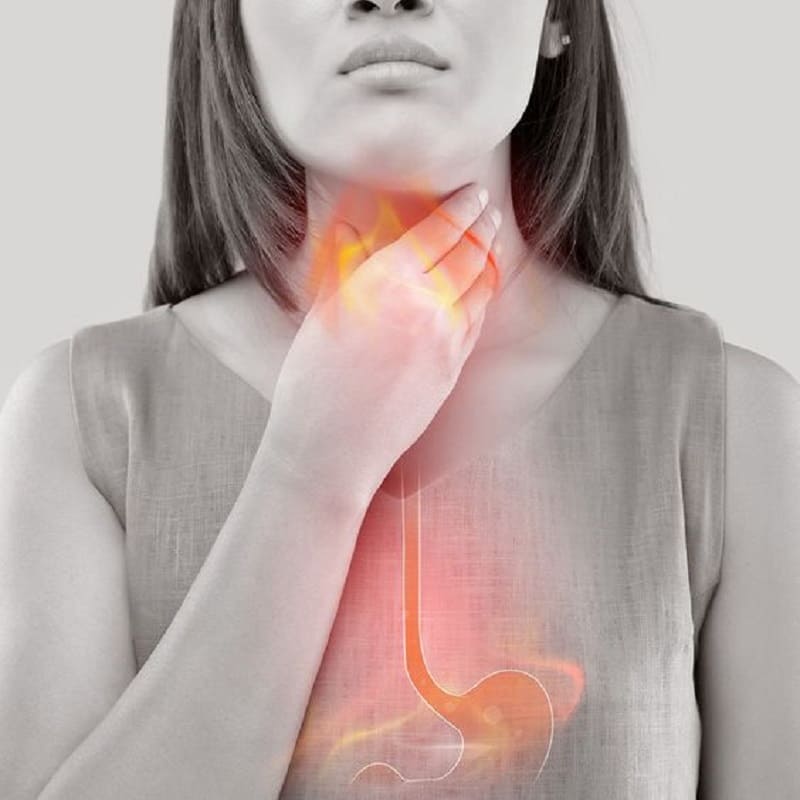
Alcoholic drinks and acid reflux
Alcohol and acid reflux are closely related, as drinking alcohol can trigger or worsen acid reflux symptoms. The effect of alcohol on the stomach is to increase acid production and relax the lower esophageal sphincter (LES), a muscle that separates the stomach and esophagus and prevents stomach acid from flowing back up into the esophagus. When the LES is weakened, stomach acid and food can move back up into the esophagus, causing heartburn, regurgitation, and other acid reflux symptoms.
How can ABV lead to acid reflux?
High alcohol by volume (ABV) in alcoholic drinks can lead to acid reflux in several ways:
- Increased acid production: Alcohol can stimulate the production of stomach acid, leading to more frequent and severe acid reflux symptoms.
- Weakened lower esophageal sphincter (LES): Alcohol can relax the LES, a muscle that separates the stomach and esophagus and prevents stomach acid from flowing back up into the esophagus. When the LES is weakened, stomach acid and food can move back up into the esophagus, causing heartburn, regurgitation, and other acid reflux symptoms.
- Delayed stomach emptying: Alcohol can slow down the movement of food through the digestive system, causing it to stay in the stomach for longer periods. This can increase pressure on the LES and lead to acid reflux symptoms.
- Increased inflammation: Alcohol can cause inflammation of the lining of the stomach and esophagus, which can exacerbate acid reflux symptoms.
- Dehydration: Alcohol is a diuretic, which means it can cause dehydration. Dehydration can lead to a decrease in saliva production, which is important for neutralizing stomach acid and preventing acid reflux symptoms.
It is best for acid reflux sufferers to limit or avoid high ABV alcoholic drinks, as they can increase the risk of acid reflux symptoms and complications. Choosing low ABV drinks or drinking in moderation can help minimize the risk of acid reflux symptoms.

What alcohol is best for acid reflux?
There is no one-size-fits-all answer to what is the best alcoholic drink for acid reflux, as different people may have different trigger foods and beverages. However, there are some types of alcoholic drinks that may be better tolerated than others for acid reflux sufferers.
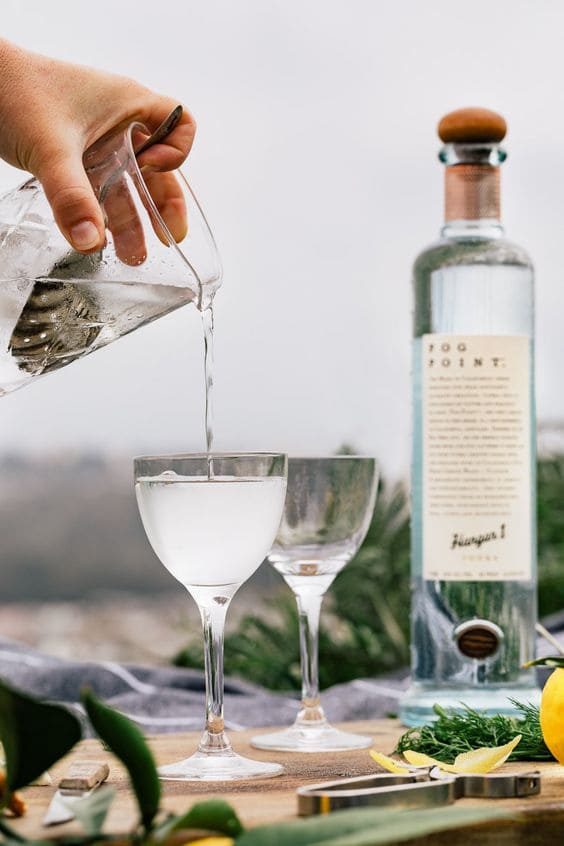
- Clear spirits: Clear spirits like vodka and gin may be less likely to cause acid reflux symptoms than dark spirits like whiskey and rum. This is because clear spirits have lower levels of congeners, which are by-products of alcohol fermentation that can cause headaches and other allergic reactions that can worsen acid reflux symptoms.
- Non-carbonated mixers: Mixing alcohol with non-carbonated mixers like juice or water can help reduce the risk of acid reflux symptoms. Carbonated mixers like soda and tonic water can increase the risk of bloating, which can exacerbate acid reflux symptoms.
- Low ABV drinks: Choosing low ABV drinks can help minimize the risk of acid reflux symptoms. High alcohol content can stimulate acid production, weaken the lower esophageal sphincter (LES), and delay stomach emptying, all of which can contribute to acid reflux symptoms.
Now you know what alcohol is best for GERD, it is crucial for acid reflux sufferers to be mindful of their alcohol consumption and to choose their drinks carefully. Moderation and avoidance of trigger foods and beverages can help minimize acid reflux symptoms and improve overall digestive health.
Beer and acid reflux
Beer is a carbonated beverage and contains both hops and alcohol, which can trigger acid reflux symptoms. Therefore, it is generally recommended for acid reflux sufferers to limit or avoid beer consumption
How does beer affect acid reflux?
Beer can worsen acid reflux symptoms in several ways, making it a potentially problematic drink for individuals with acid reflux.
- Carbonation: Beer is carbonated, which can lead to increased bloating and gas in the stomach. This can put pressure on the lower esophageal sphincter (LES), a muscle that separates the stomach and esophagus and prevents stomach acid from flowing back up into the esophagus, causing acid reflux symptoms.
- Acidic content: Beer can be acidic in nature, which can irritate the lining of the stomach and esophagus, causing inflammation and discomfort.
- High-fat content: Some beers, such as stouts and porters, can be high in fat content, which can slow down stomach emptying and increase the risk of acid reflux symptoms.
What beer is good for acid reflux?
If you still want to enjoy a beer, there are some things you can do to minimize the risk of acid reflux symptoms:
- Choose low-alcohol beer: High alcohol content can stimulate acid production and weaken the lower esophageal sphincter (LES), leading to acid reflux symptoms. Therefore, choosing a low-alcohol beer can help minimize the risk of symptoms.
- Choose non-carbonated beer: Carbonated drinks can cause bloating and increase the risk of acid reflux symptoms. Therefore, choosing a non-carbonated beer can help reduce the risk of symptoms.
- Choose light beer: Light beers have fewer calories and less alcohol than regular beers, making them less likely to cause acid reflux symptoms.
- Avoid beers with trigger ingredients: Some beers contain ingredients like wheat, barley, or hops that can trigger acid reflux symptoms. Therefore, it is best to avoid these types of beers if you are prone to acid reflux.
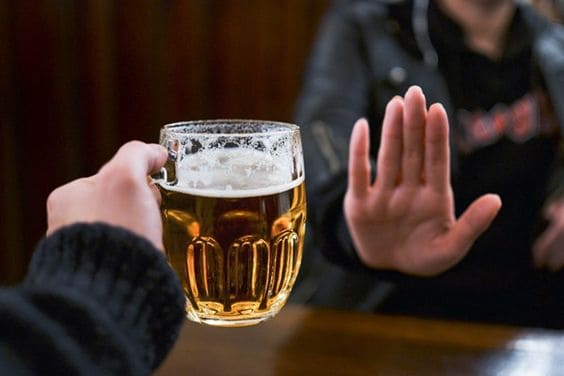
Wine and acid reflux
Wine is a popular alcoholic drink enjoyed by many, but for individuals with acid reflux, it can be a trigger for uncomfortable symptoms.
How does wine affect acid reflux?
Wine can worsen acid reflux symptoms in many ways, making it a potential trigger for discomfort and pain in individuals with this condition.
- Acidic content: Wine is naturally acidic, which can irritate the lining of the stomach and esophagus, causing inflammation and discomfort. This can lead to heartburn, regurgitation, and other acid reflux symptoms.
- Carbonation: Some wines, such as sparkling wines and champagne, are carbonated, which can lead to increased bloating and gas in the stomach. This can put pressure on the lower esophageal sphincter (LES), a muscle that separates the stomach and esophagus and prevents stomach acid from flowing back up into the esophagus, causing acid reflux symptoms.
- Sulfites and other additives: Some wines contain sulfites and other additives that can trigger allergic reactions or worsen acid reflux symptoms.
What wine is good for acid reflux?
Note that what works for one person may not work for another, and it is best to listen to your body and choose drinks that do not trigger or worsen symptoms. That being said, some types of wine may be better tolerated by individuals with acid reflux:
- Low-acid white wines: White wines that are lower in acidity, such as Pinot Grigio, Sauvignon Blanc, and Chardonnay, may be better tolerated by some acid reflux sufferers than higher-acid wines like Riesling or Champagne.
- Low-alcohol content wines: Choosing wines with lower alcohol content, such as wines labeled “light” or “low-alcohol,” may help minimize the risk of acid reflux symptoms.
- Non-alcoholic wines: Non-alcoholic wines may be an option for those who want to enjoy the taste of wine without the potential side effects.
What happens if an acid reflux person drinks too much alcohol?
If people with acid reflux drink too much alcohol, it can worsen their symptoms and lead to complications. Here are some potential consequences of drinking too much alcohol with acid reflux:
- Increased risk of acid reflux symptoms: Drinking too much alcohol can relax the lower esophageal sphincter, the muscle that separates the stomach and esophagus, allowing stomach acid to flow back up into the esophagus and trigger symptoms.
- Esophageal damage: Chronic acid reflux can damage the lining of the esophagus and increase the risk of complications like Barrett’s esophagus and esophageal cancer. Drinking alcohol excessively can exacerbate this damage.
- Dehydration: Alcohol is a diuretic, which means it can increase urination and lead to dehydration. Dehydration can worsen acid reflux symptoms and increase the risk of complications.
- Interactions with medications: Drinking alcohol can interact with medications used to treat acid reflux, such as antacids and proton pump inhibitors, and reduce their effectiveness.
- Nutritional deficiencies: Excessive alcohol consumption can interfere with nutrient absorption and lead to nutritional deficiencies that can exacerbate acid reflux symptoms and increase the risk of complications.

What is good to drink with acid reflux?
If you have acid reflux, there are several types of drinks that may be better tolerated than others. Here are some options for drinks that may be good for acid reflux:
- Water: Drinking plenty of water throughout the day can help keep the stomach and esophagus hydrated and reduce the risk of acid reflux symptoms.
- Non-acidic juices: Non-citrus-based juices like apple, pear, and melon juice can be a good option for acid reflux sufferers. However, it is important to choose juices that are not highly acidic.
- Non-dairy milk alternatives: Some individuals with acid reflux may be able to tolerate non-dairy milk alternatives like almond milk or oat milk.
- Herbal teas: Some types of herbal teas, such as chamomile, ginger, and licorice root tea, may help soothe the digestive tract and reduce the risk of acid reflux symptoms.
- Low-acid coffee alternatives: If you enjoy coffee but find that it triggers your acid reflux symptoms, there are several low-acid coffee alternatives on the market that may be better tolerated.
What drinks cause acid reflux?
Beside knowing what is the best alcoholic drink for acid reflux, you should also know what drinks cause acid reflux to avoid them. Several types of drinks can cause acid reflux or worsen existing symptoms, including:
- Coffee and tea: Caffeinated beverages like coffee and tea can stimulate the production of stomach acid, leading to more frequent and severe acid reflux symptoms.
- Carbonated beverages: Carbonated beverages like soda and sparkling water can increase bloating and put pressure on the lower esophageal sphincter (LES), a muscle that separates the stomach and esophagus and prevents stomach acid from flowing back up into the esophagus. This can lead to acid reflux symptoms.
- Alcohol: Alcohol can relax the LES and stimulate acid production, leading to increased risk of acid reflux symptoms. Some types of alcohol, such as red wine and beer, can also be acidic and worsen symptoms.
- Citrus juices: Citrus fruits and juices like orange juice and grapefruit juice can be highly acidic and irritating to the stomach and esophagus.
- Tomato-based juices: Tomato-based juices like tomato juice and Bloody Mary mix can be highly acidic and irritating to the stomach and esophagus.
- Milk and dairy products: Dairy products can be high in fat content, which can slow down stomach emptying and increase the risk of acid reflux symptoms.
Tips for managing acid reflux while drinking
For individuals with acid reflux who still want to enjoy alcoholic drinks, here are some tips for managing symptoms:
- Limit consumption: Consuming alcohol in moderation can help minimize the risk of acid reflux symptoms. It is recommended to limit consumption to one drink per day for women and two drinks per day for men.
- Choose low-alcohol drinks: Choosing low-alcohol content drinks, such as light beers or low-alcohol wines, can help minimize the risk of acid reflux symptoms.
- Avoid carbonation: Carbonated drinks like beer and soda can increase bloating and put pressure on the LES, making acid reflux symptoms more likely. Choosing non-carbonated drinks like water or juice can help minimize the risk of symptoms.
- Mix with non-acidic mixers: Mixing alcohol with non-acidic mixers like water or juice can help minimize the risk of acid reflux symptoms. Avoiding citrus-based mixers and carbonated mixers can also be helpful.
- Wait before lying down: It is recommended to wait at least three hours after drinking alcohol before lying down to allow time for the stomach to empty and reduce the risk of acid reflux symptoms.
- Maintain a healthy diet and lifestyle: Eating a healthy diet and maintaining a healthy weight can help minimize the risk of acid reflux symptoms. Avoiding trigger foods and beverages and seeking medical attention if symptoms persist or worsen over time can also help improve overall digestive health.

Precautions for acid reflux sufferers
If you have acid reflux, there are several precautions you can take to manage your symptoms and improve your overall digestive health. Here are some precautions for acid reflux sufferers:
- Avoid trigger foods and beverages: Certain foods and drinks can trigger acid reflux symptoms, so it is important to identify and avoid these triggers. Common trigger foods include spicy and fatty foods, caffeine, chocolate, citrus fruits and juices, tomatoes and tomato-based products, and alcohol.
- Eat smaller, more frequent meals: Eating smaller, more frequent meals throughout the day can help prevent the stomach from becoming too full and reduce the risk of acid reflux symptoms.
- Avoid lying down after eating: Waiting at least three hours after eating before lying down can help prevent stomach acid from flowing back up into the esophagus.
- Maintain a healthy weight: Being overweight or obese can increase the risk of acid reflux symptoms, so maintaining a healthy weight through a balanced diet and regular exercise can be helpful.
- Wear loose-fitting clothing: Tight-fitting clothing, particularly around the waist and abdomen, can put pressure on the stomach and increase the risk of acid reflux symptoms.
- Elevate the head of your bed: Raising the head of your bed by 6 to 8 inches can help prevent stomach acid from flowing back up into the esophagus while you sleep.
- Quit smoking: Smoking can weaken the lower esophageal sphincter, a muscle that separates the stomach and esophagus, and increase the risk of acid reflux symptoms.
Following these precautions and seeking medical attention if symptoms persist or worsen over time can help improve overall digestive health.
FAQs
How do I prepare for a night of drinking with acid reflux?
Preparing for a night of drinking with acid reflux involves taking steps to minimize the risk of symptoms. This may include avoiding trigger foods and drinks, choosing low-acid or non-carbonated drinks, drinking in moderation, and waiting several hours before lying down after drinking. It is also important to maintain a healthy diet and lifestyle to improve overall digestive health.
How do you coat your stomach before drinking?
Coating your stomach before drinking is not a proven method for preventing acid reflux symptoms. While some people may find that eating a small, low-fat meal before drinking helps prevent symptoms, others may find that it worsens symptoms. It is important to listen to your body and choose foods and drinks that do not trigger or worsen symptoms.
Should you take antacid before drinking alcohol?
Taking antacids before drinking alcohol is not recommended as it may increase the risk of alcohol-related harm. Antacids can interfere with the absorption of alcohol in the stomach, leading to increased blood alcohol levels and impaired judgment. Additionally, antacids may interact with certain medications, so it is important to speak with your healthcare provider before taking antacids.
Is drinking water at night bad for acid reflux?
Drinking water at night is not inherently bad for acid reflux, but drinking large amounts of water before bed may increase the risk of acid reflux symptoms. It is important to stay hydrated throughout the day but avoid drinking large amounts of water before bed.
What is the best thing to eat before drinking alcohol?
The best thing to eat before drinking alcohol is a small, low-fat meal. Eating a small meal before drinking can help prevent symptoms by keeping the stomach from becoming too full.
Can peanut butter help acid reflux?
Peanut butter may not be a good choice for individuals with acid reflux as it is high in fat, which can slow down stomach emptying and increase the risk of symptoms. However, every person with acid reflux may have different trigger foods and should experiment to see which foods work best for them.
What not to do before drinking alcohol?
Before drinking alcohol, it is important to avoid trigger foods and drinks, avoid overeating, and avoid smoking. Additionally, it is important to drink in moderation, stay hydrated, and wait several hours before lying down after drinking.
What foods help acid reflux go away fast?
Foods that may help alleviate acid reflux symptoms include oatmeal, ginger, lean protein, non-citrus fruits, and vegetables. However, every person with acid reflux may have different trigger foods and should experiment to see which foods work best for them.
Are saltine crackers good for acid reflux?
Saltine crackers may not be a good choice for individuals with acid reflux as they are high in salt and can increase the risk of symptoms. However, every person with acid reflux may have different trigger foods and should experiment to see which foods work best for them.
Is ice cream good for acid reflux?
Ice cream may not be a good choice for individuals with acid reflux as it is high in fat and can slow down stomach emptying, increasing the risk of symptoms. However, every person with acid reflux may have different trigger foods and should experiment to see which foods work best for them.
Conclusion
In conclusion, finding what is the best alcoholic drink for acid reflux can be a challenging task, but it is not impossible. As we have discussed, different types of alcoholic drinks can have varying impacts on acid reflux, and the choice of mixers can also play a role. It is essential to be mindful of your body’s reactions and experiment to find the best option for you. Additionally, taking precautions while drinking and considering alternatives to alcohol can also help minimize symptoms. With the right approach, it is possible to enjoy a night out without suffering from acid reflux. So, next time you plan to have a drink, keep in mind the tips and factors we’ve discussed to make an informed decision and have a good time while taking care of your health.
I’m Chen Mina, from Vol de Nuit, who has a special passion for bartending, especially mixing wine, beer, and cooktail. Here you will find content about alcoholic beverages, I will bring you knowledge that few people know about this drink.
